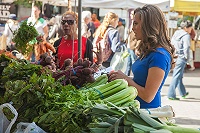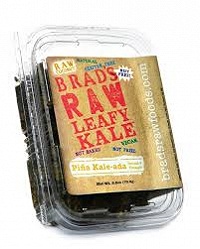Unless you’ve been living under a rock (or maybe in new baby chaos) lately, the scary state of our environment is a topic constantly in the news. We can all do our part in sharing the existing resources that our planet has to offer as well as limiting new unnecessary purchases, but the reality is we are all consumers. The modern consumer (and modern mom) is acutely aware of our finite planet and finite resources. Our daily choices as consumers will directly impact the world in which our children and grandchildren live in so it makes perfect sense that we become more aware of our purchases on a daily basis.
So what IS a conscientious consumer? Part of being a conscientious consumer is educating ourselves about the hidden costs behind the purchases we make. More importantly, it means understanding how our purchases can help shape more sustainable business practices, which leads to a more responsible economy as a whole. Read on for the top three (very simple) ways you can become an environmentally conscientious consumer in 2014.
MEAL PLAN IN ORDER TO WASTE LESS
While it can be a daunting task to initiate meal planning it will probably be the most effective decision you can make for your family and our environment. When you think about what you will prepare for the week ahead and calculate exactly how much you will need, it inherently limits your household waste. Including your family members in the meal planning is also helpful so you purchase items you know they will eat, again limiting leftovers and waste. If you do have surplus left over from a meal, be sure to save it for lunch the next day – often it tastes even better a day later once the ingredients meld bringing out a richer flavor.
PURCHASE ORGANIC AND LOCAL AS OFTEN AS POSSIBLE
Buying organic has a great impact both environmentally and politically on our country. Less pesticides, chemicals and GMO’s in our world mean healthier adults and children alike, not to mention clean food. Also, our government will start to take note when organic produce purchases begin to substantially increase. Perhaps the government will re-evaluate some of the $76 billion they currently allot to subsidize corn syrup to support organic farmers instead. Buying locally is a no-brainer when possible as it reduces the carbon footprint caused by long-distance transportation of produce.

SUPPORT COMPANIES WHO GIVE BACK & SEEK OUT SMALLER BUSINESSES
One of the easiest ways to become a conscientious consumer is to support companies who make giving back a priority. One great example is Brad’s Kale Chips. They donate 2 cents of every package of kale sold to Rodale Institute’s “Your 2 Cents Fund” which gives back in many ways: they offer scholarships to organic farming students, support for new organic farmers and help Veterans establish new careers in organic farming. It is a win-win for both consumers, producers and farmers and you can’t beat that!

